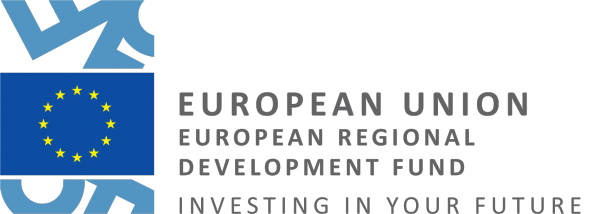Política de Sostenibilidad
Nuestra principal política es crear conciencia, participar en prácticas sostenibles y, eventualmente, trabajar en estrecha colaboración con proveedores sostenibles en diferentes sectores de la industria. Las políticas específicas sobre temas clave son las siguientes:
Gestión social interna:
- Todos los empleados reciben un contrato formal por escrito que detalla responsabilidades/tareas, derechos – incluidos los días festivos, salarios, horas de trabajo y la libertad de terminar con sus contratos de trabajo.
- Todos los empleados reciben el salario mínimo requerido por la ley o superior, dependiendo del alcance y contenido del trabajo.
- Ofrecer compensación por horas extras y seguro médico que cumpla con el requisito de ley.
- Desarrollar un sistema interno donde los empleados puedan expresar libremente sus comentarios, quejas, inquietudes y satisfacciones sobre la empresa.
- Garantizar un entorno de trabajo seguro donde haya botiquines de primeros auxilios y extintores que son revisados periódicamente. Ofrecer una formación anual sobre seguridad contra incendios para todo el personal de acuerdo con la ley.
- Practicar la igualdad de oportunidades en términos de contratación (estudiantes, personas con discapacidad, edades, nacionalidades o religiones ) y en términos de acceso a los recursos disponibles (incentivos, formaciones) en función del ámbito de trabajo.
Ambiente interno:
- Política de “apagado” fuera del horario laboral de todos los equipos/iluminación en las oficinas de Ljubljana y Novo Mesto. Todas las impresoras y LP se configuran automáticamente en modo de suspensión si no se usan por un tiempo. En la oficina de Ljubljana, el aire acondicionado y la iluminación se apagan automáticamente cuando no hay personal en la oficina. En las oficinas de Novo Mesto se añade un recordatorio de “apagar” a los interruptores de luz y al aire acondicionado.
- Reducción de energía mediante el uso inteligente de la comunicación interna, a través de un menor uso de archivos adjuntos, uso de contenido breve y conciso, o la circulación de información a través de plataformas compartidas, por ejemplo, Team o Viva-Engage.
- A la hora de alquilar o comprar material de oficina, se da prioridad a aquellos que tengan modo/función de eficiencia.
- El material impreso para promoción y marketing se reduce al mínimo y el formato digital será usado en hasta 80% en los años siguientes.
- Compra al por mayor para reducir la cantidad de empaque en términos de souvenirs y priorización de productos de producción local.
- Reciclaje de papel realizando copias a doble cara o utilizando el lado en blanco para otros fines.
- Reciclaje de los desechos en la oficina, separándolos adecuadamente de acuerdo con las pautas gubernamentales. El 80% de los empleados trae su propio almuerzo en promedio 3 veces por semana, lo cual ayuda a reducir el desperdicio de envases de alimentos.
- Se reduce el desperdicio de comida en la oficina promoviendo “come lo que traes” y “lleva lo que sobra a casa”.
- Recolección y reciclaje de baterías usadas.
- El uso de plástico de un solo uso se reduce al menos en un 50% en la oficina, proporcionando utensilios de cocina y cubiertos de uso común. Cuando se pide comida para llevar, se considera el embalaje ecológico de los alimentos.
- En ambas oficinas se comparte ocasionalmente el auto entre colegas, mientras que algunos utilizan el autobús, la bicicleta y el tren para desplazarse. El trabajo remoto desde casa se aplica para quienes viven más lejos.
- Proporcionar actualizaciones periódicas sobre temas de sostenibilidad para la capacitación y educación interna del personal.
- Incrementar la asistencia/participación en talleres/seminarios sostenibles en los próximos años. (Trensend en 2022, Green Day/Green Scheme of Slovenia Tourism en 2023).
- Participación continua en proyectos/iniciativas locales (por ejemplo, visitas Misterion /Inter) que conectan a proveedores de comunidades locales y desarrollan el turismo de forma colectiva.
Cadenas de suministro:
- Seguir utilizando el autocar como principal medio de transporte para grupos y, si es posible, con bajas emisiones.Ofrecer traslados públicos parciales (por ejemplo, autobús, tren, ferry/catamarán) como opción al dar sugerencias a clientes individuales.
- Desarrollar paquetes sostenibles que elaboren elementos con orientación local, priorizando proveedores locales del ámbito turístico - naturaleza, cultura, gourmet, o alojamientos, guías, artistas, etc.
- Establecer una lista de alojamientos sostenibles para que se puedan dar sugerencias adecuadas cuando sea necesario, siendo Eslovenia y Croacia nuestra prioridad.
- Trabajar con unidades de alojamiento que sigan el marco legal y rechacen el trabajo infantil y obligatorio, comunicándolo a todos los públicos a través de nuestro sitio web.
Destinos:
- Siempre que sea posible, seleccionar atracciones que sean de importancia natural, cultural e histórica.
- Evitar destinos turísticos masivos o proporcionar sugerencias alternativas que tengan en cuenta la sostenibilidad.
- Tomar la iniciativa de trabajar con socios a nivel nacional/local para aumentar la conciencia sobre el desarrollo del turismo sostenible.
- Proporcionar información adecuada sobre souvenirs a los huéspedes y evitar promocionar aquellos que estén hechos de especies en peligro de extinción (lista de flora y fauna de CITES), o aquellas recomendaciones dadas por la UE.
Relaciones con los clientes:
- Comunique un mensaje claro: sin promesas excesivas ni precios ocultos.
- Proteger la privacidad personal a través de todos los procesos de comunicación y respetar la política GDPR.
- Proporcionar información sobre el código de conducta, la salud y seguridad personal en los destinos elegidos.
- Ofrecer sugerencias alternativas siempre que estén disponibles en relación con el alojamiento, el transporte local, los restaurantes, etc.
- Trabajar con guías/acompañantes locales certificados y capacitados y brindar información relevante, particularmente en el área sensible a la naturaleza/cultura.
- Los clientes/guías locales están bien informados sobre los contactos de emergencia y que nuestro contacto a cargo/otros miembros del personal en la oficina sigan las pautas y atiendan las emergencias de manera oportuna.
- Monitorear y medir la satisfacción y las quejas de los clientes a través de nuestros procedimientos establecidos, y ajustar los productos y servicios si es necesario.
- Comunicarnos con proveedores/guías locales para recibir comentarios positivos/negativos y diferentes puntos de vista.

